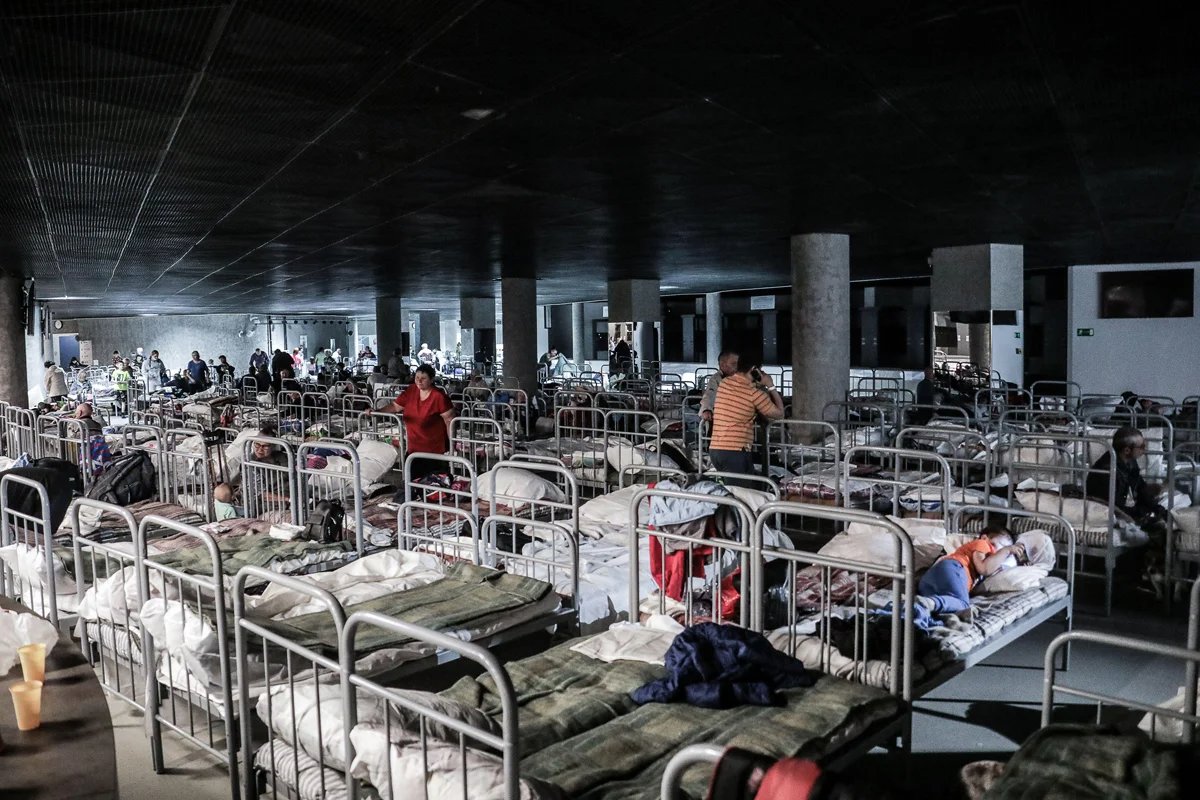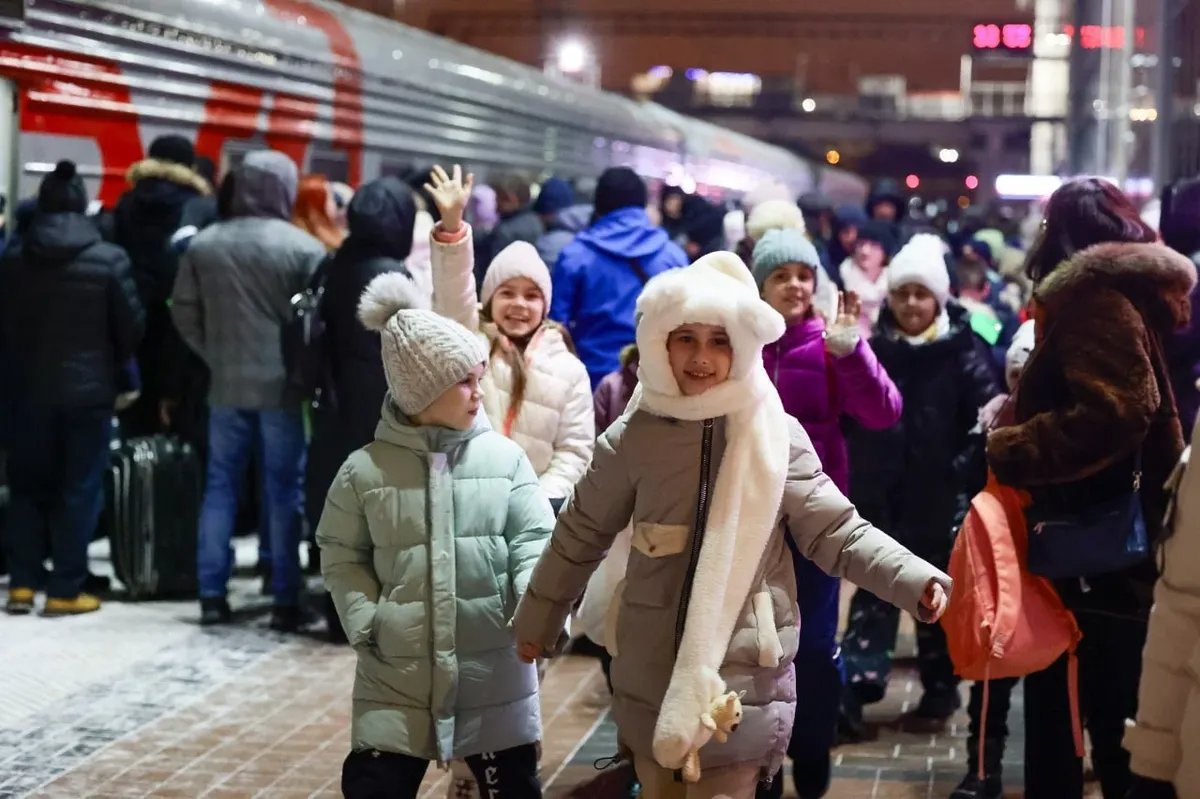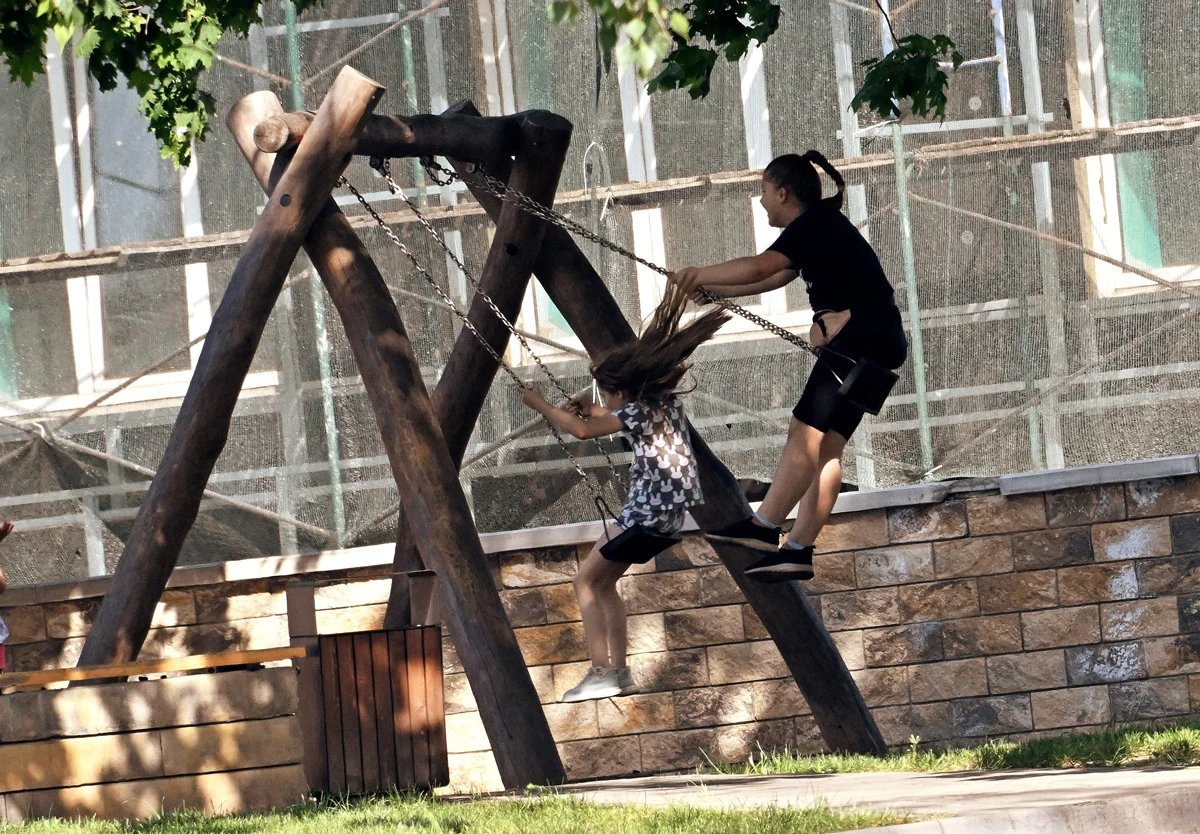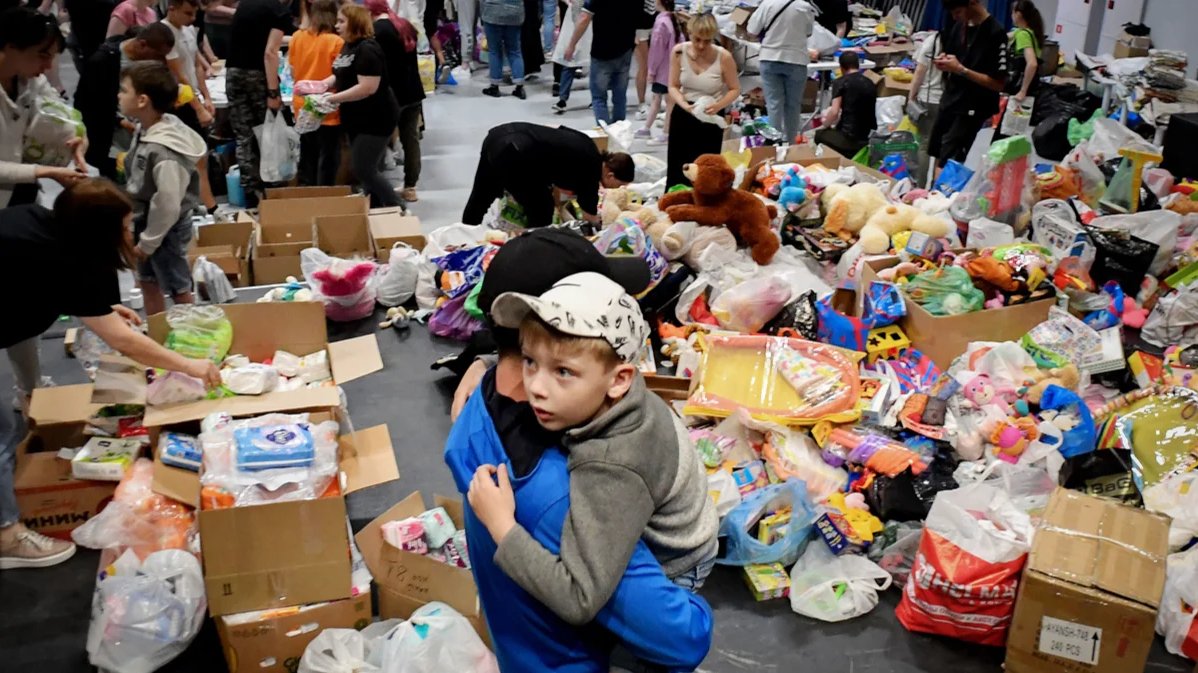Residents of Russia’s Belgorod region first learned what temporary shelters were in 2022 when the self-appointed authorities in the nearby Russian-occupied Luhansk and Donetsk regions of Ukraine began evacuating civilians into their region as the war began and providing them with makeshift accommodation.
The shelters were usually hotels, converted student dormitories, mattresses on the floor of a school gymnasium or tented camps. Soon after the war began, evacuees from border villages within the Belgorod region were also billetted to the shelters.
Usually, temporary shelters have little to do with war. Russia’s Emergency Situations Ministry published official requirements for temporary accommodation to be provided in an emergency in 2021, mandating that people should be housed in such centres for no more than six months. But as regulations cannot always be adhered to in wartime, many people have ended up stuck in temporary accommodation for years.
‘I’m a burden to the state’
“You can guess what the conditions are like. People have their children and pets with them,” says Veronika, from the Belgorod region town of Shebekino, just north of the Ukrainian border. “I arrived in June, and … there were so many people. … We were on the street once and overheard two men say: ‘Look at them all and we have to feed them.’ I wouldn’t eat there after that.”
Veronika left Shebekino, which she said had been used to shelter about 100 people, in the summer of 2023, having rented an apartment nearby, though she returned to Shebekino once the shelling died down again.
“I’m a Russian citizen, I pay my taxes, but apparently I’m a burden to the state. They didn’t forget to send me a tax bill. My rent’s gone up.”
Last year, residents of Belgorod’s border villages received one-off aid payments of 10,000 rubles (€95) and an additional 50,000 rubles (€475) if their property had been damaged. Veronika received both but was warned that there would be no repeat compensation if her property was damaged further.
When Veronika complained about the one-off compensation payment to the office of Belgorod Governor Vyacheslav Gladkov, she was informed that further payments would only be made if “vital household appliances were damaged”, meaning that any other damage would be for her to pay for. “I’m a Russian citizen, I pay my taxes, but apparently I’m a burden to the state. They didn’t forget to send me a tax bill. My rent’s gone up. … But a lot of people chose to stay in Shebekino, and I was one of them.”

A temporary accommodation centre in Belgorod, 1 June 2023. Photo: Picvario Media, LLC / Alamy / Vida Press
Homeless crooks
“Why don’t people leave? Because they’re afraid their house will catch fire and nobody will put it out. They’re afraid for their property, in which they’ve invested years of their lives. But that can all be restored, whereas a life can’t. Which is why we want people to go to a safe place,” Gladkov wrote back in July.
The reluctance of most residents to leave their homes is due to them having nowhere else to go and nothing to live on when they get there. Even the regional authorities offering to pay the rent of those who left their homes on the border turned out to be a poor incentive.
“First you have to find somewhere to rent and pay the rent yourself, and only then do they pay you back,” says border village resident Svetlana. “That’s why many don’t leave — they simply can’t afford to. But if you’ve lost your job because of the war, then you’re really screwed. All you can do is look for a new job and live in debt.”
Svetlana found herself with no money in the summer of 2023 and initially attempted to seek assistance from the regional authorities. She soon realised she was wasting her time, however, and was forced to take out a loan that she found very difficult to repay.
“That’s why many don’t leave — they simply can’t afford to. But if you’ve lost your job because of the war, then you’re really screwed. All you can do is look for a new job and live in debt.”
Anybody who has more than one home is automatically disqualified from seeking compensation from the authorities, even if both are in the border area and likely to come under shelling. Even some of those lucky enough to have received compensation may soon lose it.
On 11 November, Yelena Batanova, the regional social protection minister, announced that spot checks had been carried out on some 309 addresses where those who had received state funds to pay their rent said they were living. It turned out that 62 people did not live at the addresses they had given in their applications, while another 111 did not open the door.

Belgorod Governor Vyacheslav Gladkov meets with evacuees at a temporary shelter in the Belgorod region city of Stary Sokol, 14 August 2024. Photo: Vyacheslav Gladkov / Telegram
Gladkov promised he would hand the findings over to the police and the Prosecutor’s Office in cases of fraud. Any applicants who weren’t at the address when the checks were made have had their payments stopped. A week later, Gladkov threatened another round of spot checks and said he would task a special commission to submit tenant data to the Prosecutor’s Office.
However, there are successful moves too, beyond the Belgorod region. Anna has already twice sought temporary shelter in the city of Penza, in the Volga region, after shelling came too close to home for comfort. She says she twice sought shelter in the city, once in 2023, and again this year. In 2023, all travel expenses were covered but this year they had to pay to get there themselves.
Please sir, can I have some more?
Belgorod region residents can now send their children to refugee camps outside the region, though their conditions and locations often leave much to be desired. Novaya Gazeta Europe spoke to one mother, Anna, who sent her child to Derbent in the North Caucasus republic of Dagestan, complained about the conditions there, adding that some parents had been afraid to send their children to a city where 22 people had died in a terror attack in June.
But Derbent was the only option, and parents were required to sign a consent form for their children to leave the Belgorod region. Many parents were unimpressed and kept their children at home instead, and those who didn’t are now sorry, says Anna. The pupils were in rooms of 16 people, the food was bad “and the toilet was just a hole in the floor”. There were regular reports in local media about the conditions the displaced children were being kept in.

Children being evacuated from the Belgorod region, 10 January 2024. Photo: Vyacheslav Gladkov / Telegram
One mother wrote that the children were given used bed linen and complained of not having enough to eat. She said children had found insects on their plates, and, on one occasion, shards of glass in the food. “The staff shout at the children. ‘What did you come here for? Tell your parents to buy trips for 150,000 [rubles] (€1,400) and you’ll get better treatment. … My question is why should I pay 150,000 rubles for our … children to be treated humanely? … And who gave these people the right to do this to our children? Why do they even work there?” asks one mother. Her complaint reached the top, whereupon Gladkov reacted that “the children themselves provoked the conflict” and said the children would no longer be welcome at such camps, if the information was corroborated.
Enemy at the gates
However, it seems that soon no one from the border areas will be going anywhere. Whereas in the summer Gladkov wondered why people were so reluctant to leave, he now talks of battening down the hatches.
When asked why there were now plans afoot to rebuild in areas that were under fire, when the plan had so recently been to evacuate, Gladkov explained: “The answer is simple in terms of strategy. If we don’t, our enemies achieve their goal,” something he said “we cannot and will not allow”.

The Russian border town of Shebekino, 2 June 2023. Photo: Anatoly Zhdanov / Kommersant / Sipa USA / Vida Press
However, Gladkov was willing to admit on 28 July that there were villages even emergency services were afraid to travel to. Residents there deal with the consequences of shelling themselves, after the authorities provided some villages with fire extinguishers and water pumps.
At a meeting in October, Gladkov even suggested assembling brigades of local residents to rebuild houses in border villages, noting that it would be “too hard” for teams from the regional capital Belgorod to work there. The locals “already understand what’s happening and behave accordingly”, he said, adding that the authorities had “no other option”.

